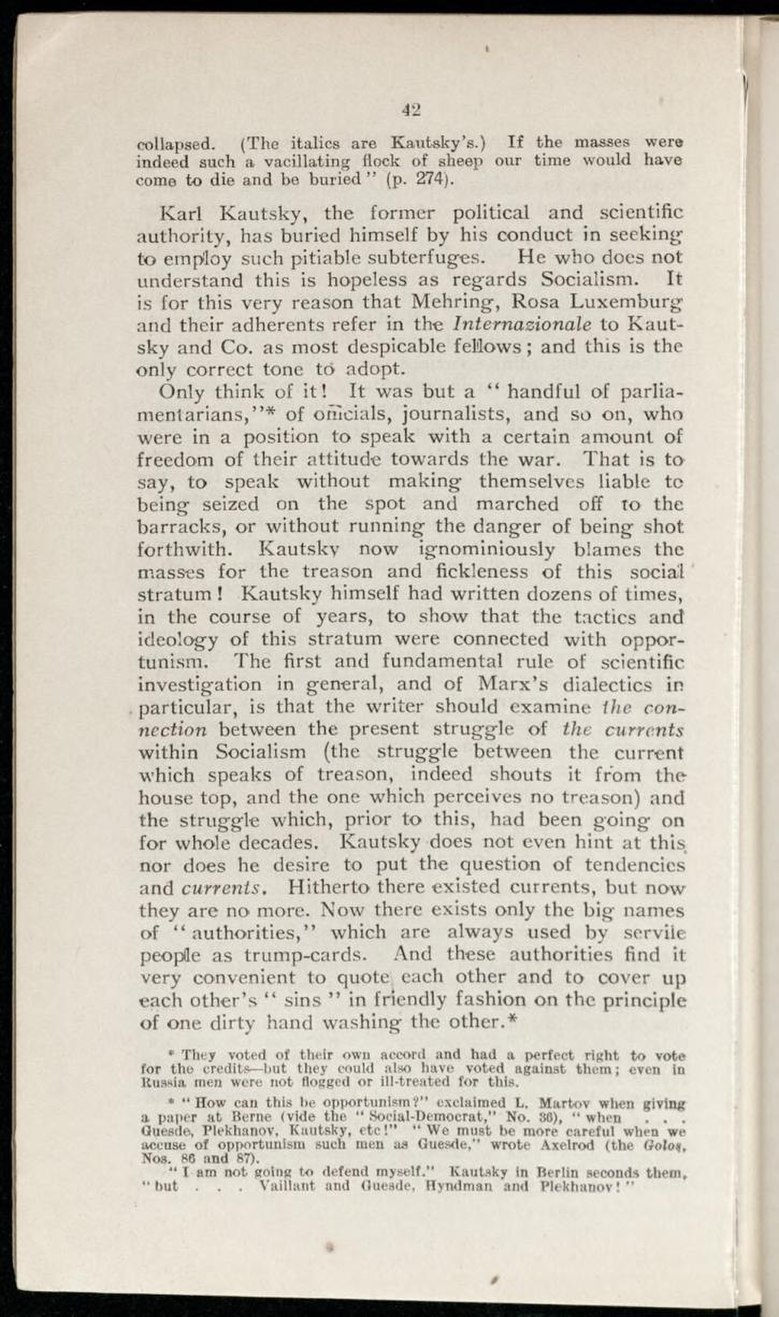42
Karl Kautsky, the former political and scientific authority, has buried himself by his conduct in seeking to employ such pitiable subterfuges. He who does not understand this is hopeless as regards Socialism. It is for this very reason that Mehring, Rosa Luxemburg and their adherents refer in the Internazionale to Kautsky and Co. as most despicable fellows; and this is the only correct tone to adopt.
Only think of it! It was but a "handful of parliamentarians,"[1] of officials, journalists, and so on, who were in a position to speak with a certain amount of freedom of their attitude towards the war. That is to say, to speak without making themselves liable to being seized on the spot and marched off to the barracks, or without running the danger of being shot forthwith. Kautsky now ignominiously blames the masses for the treason and fickleness of this social stratum! Kautsky himself had written dozens of times, in the course of years, to show that the tactics and ideology of this stratum were connected with opportunism. The first and fundamental rule of scientific investigation in general, and of Marx's dialectics in particular, is that the writer should examine the connection between the present struggle of the currents within Socialism (the struggle between the current which speaks of treason, indeed shouts it from the house top, and the one which perceives no treason) and the struggle which, prior to this, had been going on for whole decades. Kautsky does not even hint at this nor does he desire to put the question of tendencies and currents. Hitherto there existed currents, but now they are no more. Now there exists only the big names of "authorities," which are always used by servile people as trump-cards. And these authorities find it very convenient to quote each other and to cover up each other's "sins" in friendly fashion on the principle of one dirty hand washing the other.[2]
- ↑ They voted of their own accord and had a perfect right to vote for the credits—but they could also have voted against them; even in Russia men were not flogged or ill-treated for this.
- ↑ "How can this be opportunism?" exclaimed L. Martov when giving a paper at Berne (vide the "Social-Democrat," No. 80), "when … Guesde, Plekhanov, Kautsky, etc! "We must be more careful when we accuse of opportunism such men as Guesde," wrote Axelrod (the Golos, Nos. 86 and 87).
"I am not going to defend myself." Kautsky in Berlin seconds them, "but … Vaillant and Guesde, Hyndman and Plekhanov!"
